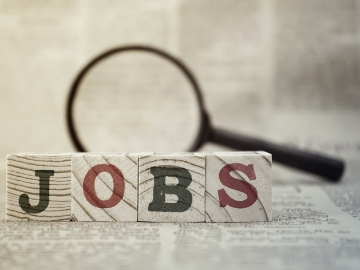Typical Questions in a Job Interview to Prepare For

Job interviews are about employers wanting to know more about you—your background, experience, and how well you fit within the company. For every interview, you need to prepare how to answer questions to increase your chances of getting the job.
Here's a handy guide for the common job interview questions.
Why Prepare for Job Interview Questions?
Preparing for the typical questions in a job interview will help you feel calmer and in control. The interviewer will better understand your attitude and how you'll work within the company. Remember not to leave everything at the last minute because this could make you nervous and struggle to find answers.
What are the Typical Questions in a Job Interview?
-
Questions about your experience
An interviewer will likely lead with a question about yourself. A question like this usually means you should talk about your work experience. Summarize your skills and the positive effect you made in your previous company. If you just graduated, you can talk about activities in school and how you performed.
-
Questions about your self-awareness
The interviewer will ask about your strengths and weaknesses. When talking about your strengths, be proud of yourself and the positive effects you've made. For weaknesses, show that work won't always go smoothly but that you can change yourself. Next, talk about your weaknesses and what you've done to improve.
Remember to give example situations for both.
-
Questions about conflicts
You won't always get along with your teammates, so an interviewer may ask about disagreements and how you resolved them. You won't always have your way, but you want the interviewer to see that you remain calm under pressure or could compromise.
-
Questions about creativity
These questions could be a set of problems you would need to solve, or they could ask you if you came up with any solutions to any processes. They may also ask how you work with your team if you apply for a leadership position.
You can talk about any projects or ideas you've had or solutions that made the process easier.
-
Questions about flexibility
Flexibility is how well you can adapt to change. For example, an interviewer may ask how you feel about shifting schedules, balancing multiple tasks simultaneously, or how you take feedback. You can tell them about how you sort through projects or take feedback to change for the better.
Your answers will let the interviewer see if you can adapt to the workload and grow within the company.
-
Questions about problem-solving
These questions are about how you solved problems in the past. Interviewers are looking for how you behaved, how you spoke, and how you handled it. Examples of questions would be a challenge you encountered at work, or they would describe an imaginary scenario and ask how you would tackle it.
First, describe the situation and the task you're supposed to do. Then explain what you did or would do to solve the issue. Finally, talk about the results.
-
Questions about leadership
If you're being interviewed for a leadership job, expect questions about how you handle a team. For example, questions may include how you manage a team, assign tasks, or give feedback to team members.
Give honest answers and examples or results that positively impacted the team and company due to your skills.
Preparedness Makes Its Own Luck
Preparing for an interview will give you the trust in yourself to stay calm. Remember that the interviewer wants to see how well you'll fit into the company and what you can do. The types of questions may have different answers, but keep in mind to give examples and to be honest.
Put yourself to the test and plan your next interview at Career.com.



